Reviews for April 2nd, 2010
Clash of the Titans
Directed by Louis Leterrier.
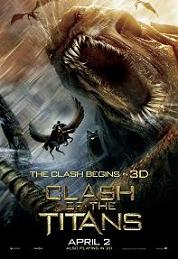
Perseus (Sam Worthington), the bastard son of Zeus (Liam Neeson), sets out on a mission to defeat Zeusí brother, Hades (Ralph Fiennes), the God of the Underworld, in retaliation for killing his adopted family. He desperately tries to save Princess Andromeda (Alexa Davalos) from getting killed by a giant monster called the Kraken. Hades wants to seize control of Argos from Zeus and to unleash hell on earth. In order to kill Hades, Perseus, a demigod, must defeat the Kraken, but to accomplish that, he must first chop off the head of Medusa and point her gaze toward the monster, thereby turning it into stone. A group of warriors, including Draco (Mads Mikkelsen), join Perseus on his adventure along with his guide, Io (Gemma Arterton). The screenplay, co-written by Travis Beacham, Phil Hay, Matt Manfredi, has essentially drained out all of the fun, thrills and excitement out of the original Clash of the Titans released back in 1981. Itís not a requirement for a Sci-Fi action adventure to have believable and true-to-life characters, but the hero, in this case Perseus, should at least be interesting and worth rooting for rather than bland and forgettable like the rest of the cardboard characters. The dramatic scenes fall flat while the action sequences have so much shaky camerawork and fast-paced editing that you can barely notice whatís going on throughout them. Director Louis Leterrier awkwardly transitions the action scenes with the dramatic scenes in a way thatís distracting and, at times, abrupt. One of the most laughably corny and contrived scenes is when Perseus is told that heís both a great human being and a great god, but the film never really fleshes out the human side of Perseus, so thereís no proof of him being such a great human to begin with. When it comes to the special effects, youíll feel so numbed by the CGI visuals, especially in unimpressive 3D, that it the purely aesthetic exhilaration quickly diminishes. Clash of the Titans is just as inane and lacking in thrills as Battlefield Earth, but at least Battlefield Earth offered campy dialogue and never actually committed the worst sin that any Sci-fi action film could possibly commit: boring the audience. At a running time of 1 hour of 46 minutes, Clash of the Titans manages to be dull, tedious, poorly paced, anti-climactic and, worst of all, one of the most boring and underwhelming blockbusters in recent memory.
Number of times I checked my watch: 8 Released by Warner Bros. Pictures. Opens nationwide. 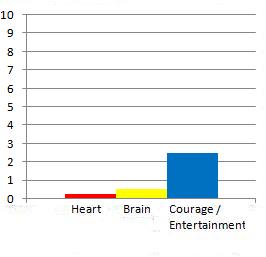
Teza
Directed by Haile Gerima.
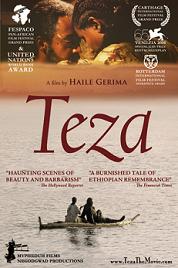
In English, Amharic and German with subtitles. Anberber
(Aaron Arefe) had left Ethiopia in the 1970ís to become a doctor in Germany. He returns, wounded, to his Ethiopian village in 1990 and recalls the events from his childhood up until now which have left him with emotional scars. He had left his beloved mother (Takelech Beyenne) in Ethiopia during the early 1970ís when a dictator, Mengistu Haile Mariam, turned the country into a war torn, highly unsafe place to live. While studying medicine in Cologne, Anberber befriended a fellow student Tesfaye (Abeye Tedla) and his girlfriend, Gaby (Veronika Avraham). He briefly romances Cassandra (Araba Evelyn Johnson-Arthur), an African woman and, soon enough, his debates with her and his friends ignite his passionate fervor for politics which puts his life at risk while concurrently changing his life forever. Writer/director Haile Gerima has woven a very intricate plot filled with many important events throughout history and the history of Europe which is very rarely tackled in films nowadays. Although all the flashbacks can be a bit confusing at times, itíll start making sense as Anberber, along with you, the viewer, struggles to connect and make sense of those events to try to figure out how they shape him as an intelligent, brave, politically-charged individual. A lot of what he says about politics during the third act of the film should be paid close attention to because the words are very wise and provocative without being preachy. Admittedly, though, Gerima could have trimmed down the length of some of the scenes which drag during the second act as Anberber walks through his village as it repeatedly brings back his memories. The scenes during which he interacts with Gabi and Tesfaye feel very stilted and distracting, especially given Veronika Avrahamís wooden performance in English that distracts from the filmís dramatic momentum. On a positive note, though, the musical score is superb along with the cinematography which looks breathtakingly beautiful with many lush scenes of nature and interesting use symbolisms, i.e. morning dew (or ďtezaĒ in Amharic). At running time of 2 hours and 20 minutes, Teza occasionally drags, but remains a provocative, brave, potent and heartfelt drama brimming with haunting, lyrical images and important sociopolitical messages. Number of times I checked my watch: 2 Released by Mypheduh Films. Opens at the Lincoln Plaza Cinemas. 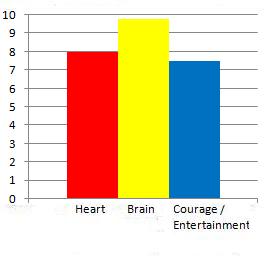
The Thorn in the Heart
Directed by Michel Gondry.

This sporadically fascinating, often dull documentary focuses on the life and work of Suzanne Gondry, director Michel Gondryís aunt, and the dynamics of the relationship between her and Jean-Yves, her son. Suzanne lives in the French countryside where she had once worked for many years as a schoolteacher nearly 60 years ago. She had even taught Algerian students at one point. The first footage you get to see, though, is from recent times as she and her family, including Michel, gather at the dinner table and share some laughter together. Director Michel Gondry then travels with her to schools around the countryside and to visit her formers students. Not surprisingly, she reminisces with them about their experiences at the school so many decades ago. Michel includes a few of his trademark uses of stylish editing and cinematography to enliven the film a bit, but itís not nearly enough to keep you immersed into the film as a whole. The marginally interesting aspect of the film, though, is Susanneís tension-filled relationship with her son, Jean-Yves, after he had come out of the closet. Jean-Yves candidly admits that heís not happy that she neglected to inform him of his fatherís death. Michel fails to adequately explore their relationship, though, and doesnít ask provocative enough questions, so, naturally, Susanneís answers arenít particularly provocative. Toward the end, he does capture a moment when she starts to cry which feels somewhat moving for the viewer, but itís hard to cry with her because you simply never have the chance to get to know her. Phyllis and Harold was also a documentary about a director who points that camera at her family and exploring their history, but that was a much more engaging and heartfelt film with questions that didnít shy away from the heart of the matter and allowed for plenty of insights that touched upon universal themes. The Thorn in the Heart, on the other hand, feels too slight, lazy and not nearly as moving or insightful as it could have been with more piercing and provocative interviews. Number of times I checked my watch: 5 Released by Oscilloscope Laboratories. Opens at the Village East Cinema. 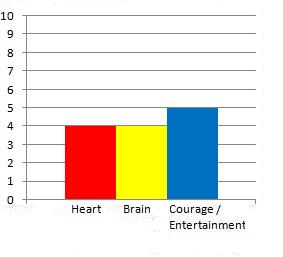
Main Page
Alphabetical Menu
Chronological Menu
______________________________________________________
|






